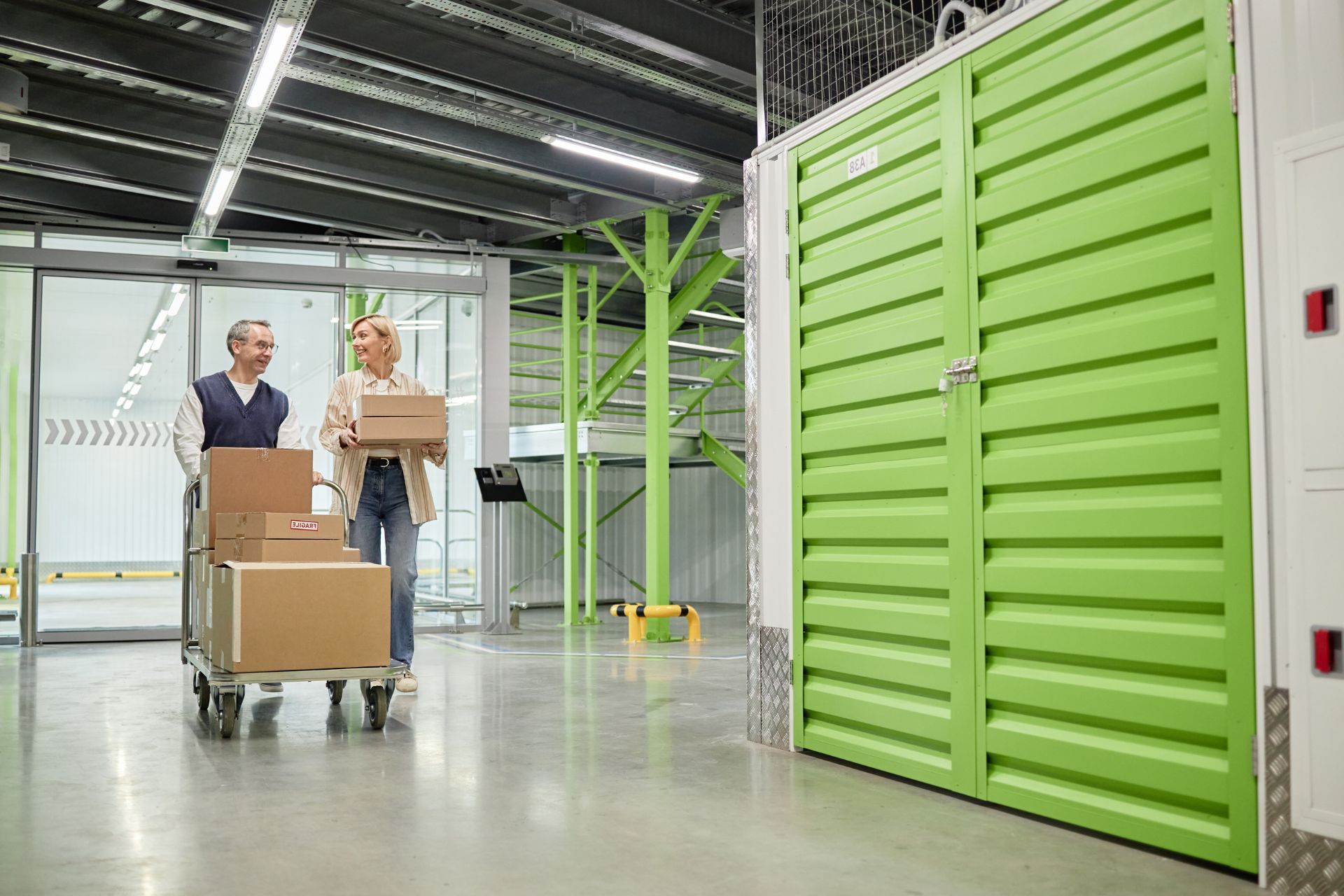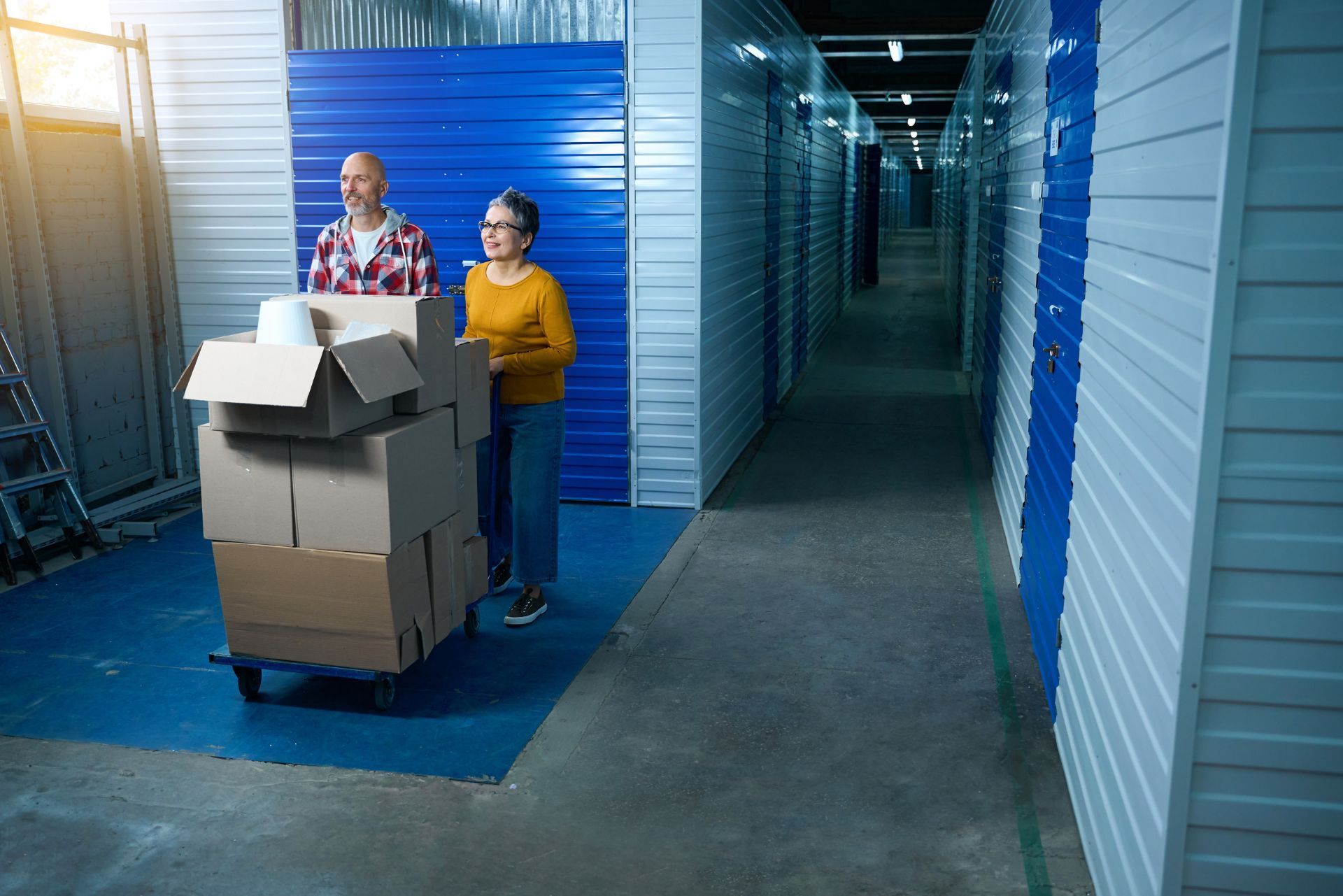
Index
Michigan’s self-storage industry has seen significant growth and transformation in recent years. With approximately 1,378 self-storage facilities spanning over 43 million square feet of storage space, the state represents a vibrant and competitive market for both operators and investors. As the industry evolves, so too does the complexity of managing risks and protecting these facilities through comprehensive insurance coverage. This article explores everything you need to know about self-storage facility insurance in Michigan, from the types of coverage available to the challenges posed by rising construction costs and new legislative requirements.
Understanding the insurance landscape is critical for facility owners who want to safeguard their investments and ensure smooth operations. For a deeper dive into Michigan’s self-storage market and its nuances, QuikStor’s Michigan self-storage statistics provide valuable insights.
Why Insurance is Essential for Michigan Self-Storage Facilities
Self-storage facilities are unique commercial properties that face a variety of risks, including property damage, liability claims, and business interruption. Insurance is not just a regulatory formality but a vital component of risk management. In Michigan, facility owners must navigate a complex environment where operational risks intersect with evolving market dynamics.
According to the Michigan Insurance Services Agency, a comprehensive insurance policy for self-storage facilities typically includes general liability, property insurance, and business income insurance. Each of these components plays a distinct role in protecting the facility from financial loss. For example, general liability insurance covers claims arising from injuries or accidents on the property, while property insurance protects against damage from fire, theft, or natural disasters. Business income insurance helps cover lost revenue during periods when the facility cannot operate due to covered damages.
Given the sheer size of Michigan’s self-storage market, with over 43 million square feet of rentable space, the potential financial exposure for operators is substantial. Proper insurance coverage ensures that facility owners can recover quickly from unforeseen events and maintain business continuity.
Moreover, the unique climate of Michigan, which experiences harsh winters and significant snowfall, adds another layer of complexity to risk management for self-storage facilities. Snow accumulation can lead to structural damage, while freezing temperatures can affect the integrity of stored items. Facility owners must not only ensure their insurance policies cover such weather-related damages but also implement preventative measures, such as regular roof inspections and snow removal services, to minimize risks. This proactive approach not only protects their investment but also fosters trust with customers, who rely on the safety of their belongings.
Furthermore, as the self-storage industry continues to evolve with technological advancements, such as climate-controlled units and enhanced security systems, insurance policies must also adapt to cover these innovations. For instance, facilities that offer high-tech surveillance or specialized storage for sensitive items may require additional endorsements to their policies. Understanding these nuances is crucial for facility owners, as they seek to balance comprehensive coverage with cost-effectiveness, ensuring they are well-prepared for any scenario that may arise in this dynamic market.
Key Insurance Coverage Types for Self-Storage Facilities
General Liability Insurance
General liability insurance is foundational for any self-storage business. It protects against third-party claims related to bodily injury or property damage occurring on the premises. For instance, if a customer slips and falls in the facility, this insurance covers medical expenses and legal fees. In Michigan, where weather conditions can contribute to slip hazards, this coverage is particularly important. Additionally, it can also cover incidents such as damage caused by falling objects or accidents involving facility maintenance personnel. Given the high volume of foot traffic in self-storage facilities, having robust general liability insurance can safeguard against potential lawsuits that could arise from these everyday occurrences.
Property Insurance
Property insurance covers the physical structure of the facility, including buildings, equipment, and sometimes the contents owned by the facility. This insurance is crucial given the rising construction costs that affect the value of these assets. Dee Wiseman, self-storage program director for William Knight Insurance Agency Inc., highlights that steel prices have surged by 71.4% from 2020 to 2023, significantly increasing the cost to rebuild or repair facilities. This inflationary pressure means that facility owners must carefully evaluate their coverage limits to avoid underinsurance. Furthermore, property insurance can also extend to cover loss or damage due to natural disasters, such as floods or earthquakes, which can be particularly devastating depending on the geographical location of the facility. Understanding the nuances of what is covered under property insurance can help facility owners make informed decisions about their risk management strategies.
Business Income Insurance
Business income insurance, also known as business interruption insurance, helps cover lost income if the facility must close temporarily due to a covered event such as fire or severe weather. This coverage ensures that fixed expenses like payroll and mortgage payments can be met during downtime, which is critical for maintaining financial stability. Moreover, it can also cover the costs associated with relocating the business temporarily, which can be a significant financial burden. For self-storage facilities, where revenue can be heavily impacted by unexpected closures, having this insurance can be a lifeline that allows owners to navigate through challenging times without jeopardizing their long-term viability.
Additional Coverage Considerations
Some facilities may also consider endorsements or additional policies, such as equipment breakdown insurance, cyber liability (especially as AI and automation become more prevalent), and environmental liability coverage. With 45% of self-storage facilities integrating AI-driven automation solutions to improve operational efficiency, protecting against cyber risks is increasingly relevant. As these technologies become more sophisticated, the potential for data breaches and cyberattacks grows, making it essential for facility owners to invest in comprehensive cyber liability coverage. Furthermore, environmental liability insurance can protect against claims related to pollution or hazardous materials, which is particularly important for facilities that may store items that could pose environmental risks. By considering these additional coverage options, self-storage facility owners can create a more resilient insurance portfolio that addresses a wider array of potential threats.

Impact of Industry Trends on Insurance Needs
The self-storage industry in Michigan is not static; it is influenced by several key trends that affect insurance requirements and risk management strategies.
Facility Expansion and Market Growth
The Greater Detroit area, in particular, has experienced a 7% growth in new self-storage facilities over the past three years, reflecting strong investor confidence. This expansion means more properties to insure and potentially higher aggregate risk exposure. Additionally, Public Storage’s recent addition of 137 facilities nationwide, totaling over 10 million net rentable square feet, exemplifies the scale at which major operators are growing. As portfolios expand, insurance programs must be tailored to address the complexities of managing multiple locations.
For those interested in market dynamics, The Storage Acquisition Group’s reports on Detroit’s self-storage market offer detailed analysis. The increasing number of facilities also leads to heightened competition, prompting operators to innovate and differentiate their offerings. This competitive landscape can drive down prices for consumers but may also pressure operators to cut costs, potentially impacting the quality of risk management practices and insurance coverage.
Design and Construction Innovations
Modern self-storage facilities are no longer just utilitarian structures; they are designed with aesthetics and customer experience in mind. Maurice Pogoda, President & Chairman of Pogoda Companies, points out that these facilities now rival other commercial buildings in design quality. While this enhances market appeal, it also raises the stakes for insurance, as higher-end construction materials and finishes can increase replacement costs.
Moreover, the sharp rise in steel prices and other construction materials directly impacts insurance valuations. Facility owners should work closely with insurers to ensure that their policies reflect current construction costs and building codes. Innovative design trends, such as incorporating eco-friendly materials and energy-efficient systems, can also influence insurance needs. As sustainability becomes a priority for consumers, self-storage operators may find themselves needing specialized coverage for green building features, which can further complicate the insurance landscape.
Legislative and Regulatory Changes
Local regulations can significantly affect how self-storage facilities operate and manage risk. The Detroit City Council is currently considering an ordinance that would impose new requirements on self-storage operators, such as providing notices to residents in transition and submitting monthly reports to the city. These regulations may increase operational complexity and liability exposure, making it essential for insurance policies to adapt accordingly.
Operators should stay informed about such developments through resources like
Self Storage Michigan’s advocacy updates. Additionally, understanding the implications of these regulations can empower operators to engage proactively with local authorities, ensuring that their facilities not only comply with new laws but also position themselves favorably within the community. As regulations evolve, so too must the strategies for risk management, necessitating a more collaborative approach between operators and their insurance providers to navigate this changing landscape effectively.
Choosing the Right Insurance Provider and Policy
Selecting the right insurance provider is as important as choosing the right coverage. Facility owners should look for insurers with specialized experience in the self-storage industry. Agencies like the Michigan Insurance Services Agency provide tailored insurance solutions that address the unique risks faced by self-storage operators in the state. These specialized providers often understand the nuances of the business, from the types of goods stored to the specific liabilities associated with various storage unit sizes and configurations.
Key factors to consider when choosing a policy include:
- Coverage Limits: Ensure limits are adequate to cover rebuilding costs, liability exposure, and potential income loss.
- Exclusions and Endorsements: Understand what is excluded and whether additional endorsements are necessary.
- Claims Handling: Choose providers with strong reputations for responsive and fair claims processing.
- Cost vs. Value: Balance premium costs against the breadth and quality of coverage.
Given the rising costs of construction and potential regulatory changes, it’s advisable to review insurance policies annually and adjust coverage as needed. Additionally, facility owners should consider engaging with an insurance broker who specializes in self-storage. A knowledgeable broker can provide insights into the latest trends in the industry, helping owners to identify emerging risks and necessary coverage adjustments. They can also assist in comparing multiple policies, ensuring that owners are not only getting the best price but also the most comprehensive protection available.
Furthermore, it’s essential to stay informed about industry standards and best practices. Regularly attending self-storage conferences or workshops can provide valuable networking opportunities and insights into how other operators manage their insurance needs. These events often feature expert speakers who discuss risk management strategies and share case studies that highlight the importance of adequate insurance coverage. By actively participating in the self-storage community, owners can better equip themselves to make informed decisions regarding their insurance policies and providers.

Preparing for Future Challenges in Self-Storage Insurance
The self-storage industry is poised for continued growth and innovation, but with that comes new challenges for insurance coverage. The integration of AI and automation, which 45% of facilities have already adopted, introduces both operational efficiencies and new cyber risks. Additionally, fluctuating material costs and evolving legal frameworks require proactive risk management. As technology continues to evolve, self-storage facilities are increasingly becoming targets for cyberattacks, making it essential for owners to invest in cybersecurity insurance as part of their overall risk management strategy. This not only protects against potential data breaches but also safeguards customer trust, which is vital in a competitive market.
Facility owners should collaborate closely with insurance professionals to conduct regular risk assessments and update policies accordingly. Staying ahead of industry trends and legislative changes will help ensure that insurance coverage remains robust and relevant. Moreover, embracing technology can aid in risk mitigation; for instance, utilizing smart surveillance systems and automated inventory management can enhance security and operational efficiency. By leveraging these advancements, owners can not only reduce their risk exposure but also demonstrate to insurers their commitment to maintaining a secure and well-managed facility.
Ultimately, comprehensive insurance is a cornerstone of sustainable self-storage operations in Michigan, providing peace of mind and financial protection in a dynamic market. As the landscape continues to shift, it will be crucial for facility owners to remain adaptable, ensuring that their insurance policies evolve alongside their business practices. Engaging in continuous education about emerging risks and insurance solutions will empower owners to make informed decisions, fostering resilience in the face of unforeseen challenges.
Conclusion
Michigan’s self-storage industry is thriving, with a large number of facilities and growing investor interest, especially in regions like Detroit. However, this growth brings increased risk exposure that must be carefully managed through comprehensive insurance coverage. From general liability to property and business income insurance, facility owners need to understand the nuances of their policies and stay informed about market trends, construction cost inflation, and regulatory developments.
By partnering with knowledgeable insurance providers and regularly reviewing coverage, Michigan self-storage operators can protect their investments and position themselves for long-term success. For more detailed information on specialized insurance options, the
Michigan Insurance Services Agency offers valuable resources tailored to the self-storage industry.

